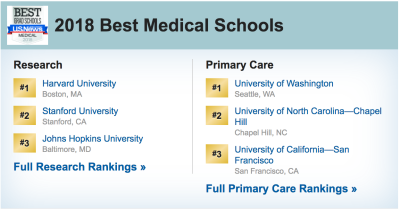Brown Opposes Care New England Sale to Partners, Teaming with Prospect
Friday, January 12, 2018
Brown University has signed up with Prospect of California to try to purchase Care New England. The duo announced the structure today and came out with a strong attack against the sale of CNE to Partners HealthCare in Boston.
In campus letter, Brown President Christina Paxson asserts that acquisition of Care New England by Boston-based Partners HealthCare is not in the best interests of Rhode Island and certainly would not be in the best interest of Brown and the Medical School. Partners is closely aligned with Harvard Medical School. Partners is a mega- group with an annual budget of $12 billion and employs more than 70,000.
The letter outlines how the "Brown-Prospect local alternative supports healthcare quality, affordability, and local jobs." Propsect operates Roger Williams Hospital and Fatima and is a for-profit company. Prospect is tied to the collapse of the failed pension system of St. Joseph pension fund.
GET THE LATEST BREAKING NEWS HERE -- SIGN UP FOR GOLOCAL FREE DAILY EBLASTThe Brown and Prospect deal freezes Lifespan out of the acquisition game.
CNE is financially beleaguered -- the healthcare group lost nearly $120 million over the past two years and recently closed Memorial Hospital and cut 800 employees.
READ THE LETTER HERE:
Dear Members of the Brown Community,
For years, Brown has worked in partnership with local healthcare systems with the vision of creating an integrated academic health system in and for Rhode Island. We believe that Rhode Islanders should have access to the best medical care in the world without having to leave the state. They should receive high-quality, affordable healthcare — from primary care to specialty care — from Rhode Island physicians who work at the leading edge of medical discovery. And they should benefit from the job creation, business development and economic growth that accompany a thriving local academic health system.
Rhode Island has all of the necessary ingredients to achieve this vision: outstanding hospitals and a talented healthcare workforce; a distinguished medical school that educates a large portion of the state’s physicians and attracts world-class doctors to the state; a leading school of public health with a strong local focus; and a growing portfolio of externally funded research and industrial partnerships. The last essential element for fulfilling the promise of a strong local academic health system is greater integration and collaboration among the entities involved in healthcare in Rhode Island — our universities, healthcare systems, state and local leaders, and members of our business community and healthcare workforce.
Although the vision of an integrated academic health system in and for Rhode Island is achievable, it is at risk of not being realized. As you may know, since last April, Boston-based Partners HealthCare has been considering an acquisition of Care New England (CNE), one of Rhode Island’s largest healthcare systems and an important affiliate of Brown’s Warren Alpert Medical School. It is likely that, within the coming months, the State of Rhode Island will face the important decision of whether to permit Partners to acquire CNE.
I feel strongly that letting this acquisition go forward would be wrong for Rhode Island and for Brown. Doing so is likely to lead to specialty healthcare shifting to Massachusetts, impeding access to healthcare for Rhode Islanders and especially for members of the state’s underserved communities. It also would likely increase the cost of care and reduce the ability of Rhode Islanders — consumers, businesses, healthcare workers and policy-makers — to have a voice in how our healthcare system works. If the focal point of Rhode Island healthcare shifts to Boston, excellent physicians (many of them Brown-trained) could be less likely to choose Rhode Island as a place to practice. In addition, the full economic benefits of a strong local academic health system — one that brings in federal grants, generates spin-off companies and creates new jobs in Rhode Island— would be lost, perhaps forever.
Today, the University is announcing an alternative proposal that would keep healthcare in Rhode Island, along with the associated economic benefits. Together with Prospect Medical Holdings, which owns CharterCARE Health Partners in Rhode Island, we are prepared to discuss potential merger discussions with CNE. I am writing to share details of this plan, which we believe is in the best interests of our state, the region and Brown.
First, here are the key elements of the Brown University-Prospect Medical plan:
• Brown University or a non-profit subsidiary of Brown would acquire CNE’s Women & Infants Hospital of Rhode Island.
• Prospect Medical would acquire CNE’s Kent Hospital and non-hospital assets, such as The Providence Center community mental health organization.
• Either Brown or Prospect would acquire CNE’s Butler Hospital (with Brown having the right to decide).
• Medical school faculty at Women & Infants, Butler and Kent would either be invited to join a Brown faculty practice plan or to become Brown employees.
• The majority of any operating margins received by Brown would be reinvested in clinical care, medical research and education.
• Brown and Prospect would offer CNE a Letter of Intent and enter into a period of expedited due diligence at CNE’s earliest convenience.
Brown believes that this plan, which would place one or two key academic hospitals under Brown’s care, positions us to create the healthcare system that Rhode Island deserves. Over the long run, we envision Women & Infants Hospital and Butler Hospital — two of the state’s premier specialty hospitals — serving as resources for all healthcare systems in the state. We also envision them as vital pieces of an integrated academic health system that includes Lifespan, Brown’s valued partner in medical education and research. This integrated system would deepen collaboration with other Rhode Island health care providers, insurers and public officials to deliver affordable, high-quality healthcare.
A critical moment for this new model
After CNE announced last April that it would enter merger discussions with Partners, and in light of our growing concern about the adverse consequences for Rhode Island of a Massachusetts-based acquisition of CNE, Brown began exploring alternatives that would keep healthcare in Rhode Island. We are pleased that Prospect has proved to be a willing partner in developing a plan.
Prospect has a national reputation for operating quality, cost-efficient healthcare facilities. Its approach is to tailor offerings to local patient populations with strong local leadership. Prospect also has made strong investments in its facilities, technology and people in Rhode Island, reflecting its deep continued commitment to Rhode Island and its healthcare system.
The plan Brown has developed with Prospect reflects Prospect’s desire to create a robust network of community hospitals in Rhode Island, along with Brown’s desire to work toward an integrated academic medical center. Our intention is to submit the Brown-Prospect plan to CNE for consideration if the Partners acquisition does not go forward, either because Partners withdraws, or its application to the state is denied.
Brown has a strong stake in CNE’s success. As one of the state’s largest employers, Brown cares deeply about Rhode Islanders having access to high-quality, affordable healthcare. In addition to being an important provider of healthcare in the state, CNE is home to Brown’s programs in obstetrics and gynecology and neonatology (at Women & Infants); in psychiatry (at Butler); and in family medicine (which CNE is relocating from Memorial Hospital to Kent). Currently, about 30 percent of Brown’s medical education takes place in CNE facilities, and Brown’s CNE-affiliated medical faculty are distinguished educators and researchers.
Obviously, there are many uncertainties at this point. The state may permit a CNE-Partners merger to take place. If it does, we are committed to working with Partners to maintain the productive relationship that Brown has enjoyed with CNE. We believe that a strong relationship with Partners would be essential to maintaining strong clinical care, medical education and research in Rhode Island. And, if the Partners acquisition of CNE does not proceed, the CNE board of directors will have to decide if our approach is right for CNE. Because CNE is currently in an exclusive arrangement with Partners, we have not been able to discuss the Brown-Prospect plan with its leaders. We value our long-standing partnership with CNE and have great respect for the CNE leadership. We will welcome their continued involvement if we are given the opportunity to move forward with a local alternative.
Despite the uncertainties, we feel it is important to let the community know that Brown is prepared do all it can to keep high-quality and affordable healthcare available to Rhode Islanders. We are determined to build an academic health system that is an engine of economic growth for our city and state, and we are fully committed to bringing together community members and stakeholders to work together in the best interests of healthcare in Rhode Island.
Sincerely,
Christina Paxson
President
Related Slideshow: 7 Implications and Unintended Consequences of a Care New England and Partners Merger
Related Articles
- Care New England Signs Agreement With Partners Healthcare for Potential Merger
- Care New England, Partners HealthCare Extend Letter of Intent Through Jan. 2018
- Care New England & Southcoast Health Move Closer to Affiliation
- Care New England is Moving Towards Deal with South Coast Health Systems
- Care New England, Southcoast Merger Dead
- Care New England Offers Healthy Recipes for Super Bowl Sunday
- Care New England Enhances Patient Safety With Germ-Zapping Robots
- Care New England Names Two to Philanthropy Posts
- NEW: Care New England Named Most Wired Healthcare Organization
- NEW: 57 Care New England Docs Named Best Doctors in America 2013
- NEW: Memorial Hospital of Rhode Island Joins Care New England
- Care New England to Host National Day of Dance at Warwick Mall
- 7 Implications and Unintended Consequences of a Care New England and Partners Merger
- Robert Whitcomb: Care New England and Partners; Fragile Freedom; Urban Shadows
- UNAP Calls Care New England’s Effort to Close Memorial Hospital Intensive Care “Irreponsible”
- Care New England Takes Another Hit, S&P Downgrades Bonds
- Care New England Claims They Will Continue in Pawtucket Area, But Refuse to Give Details
- Health Care Union Files Lawsuit Against Care New England Over Memorial Hospital Closure
- Care New England, UNAP Reach Agreement to Keep up to 200 Healthcare Jobs at Memorial
- Care New England’s Board Votes to Close Memorial Hospital, Prime Deal Collapses
- Care New England President Keefe Announces Retirement
- Care New England Begins Major Staff Reductions—Many at Women & Infants Hospital
- “Failure of Health Policy in RI” - Former Director of Health on Care New England - Partners Merger
- Care New England Faces More Changes - Already Cut Work Force from 8,500 to 6,500
- RI Healthcare Industry Moving Towards Chaos - Partners Acquisition of Care New England in Doubt















